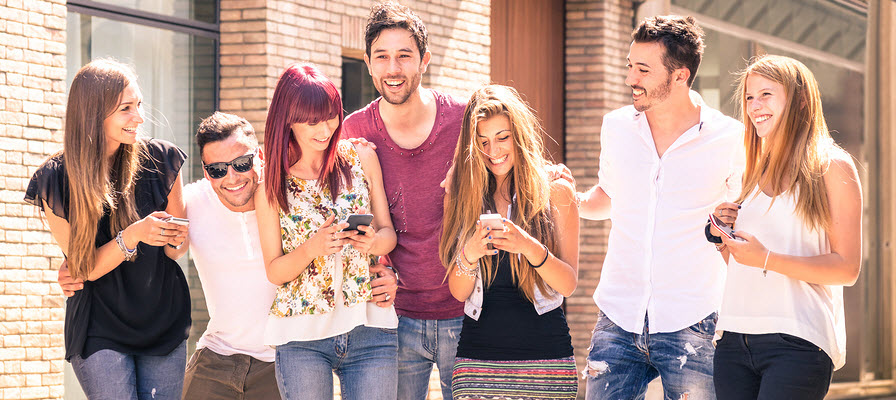Table of Contents
Key Takeaways
- 1. Social anxiety involves intense fear and avoidance of social situations, impacting mental clarity and overall quality of life.
2. Imbalances in neurotransmitters like serotonin, dopamine, GABA, and norepinephrine significantly contribute to social anxiety.
3. Natural nootropics such as L-Theanine (which promotes relaxation), Ashwagandha, Bacopa Monnieri, Rhodiola Rosea, and Magnesium effectively lower stress and ease anxiety symptoms without typical pharmaceutical side effects.
4. Natural beta-blocker alternatives like Magnesium and Potassium can manage physical symptoms of anxiety, such as rapid heartbeat and trembling.
5. Combining targeted nootropics can enhance confidence, calm nerves, and improve social performance, creating long-term relief from social anxiety.
What is Social Anxiety?
If you feel inadequate, embarrassed, inferior or humiliated. And it prevents you from going out, meeting new people, or generally messes with your mental energy and quality of life – nootropics can help.
 Social anxiety is a form of anxiety. And according to one study affects at least 14% of people living in the U.S.[i] I have a feeling that that estimate is far too low and not an accurate estimate of what’s really going on in our community.
Social anxiety is a form of anxiety. And according to one study affects at least 14% of people living in the U.S.[i] I have a feeling that that estimate is far too low and not an accurate estimate of what’s really going on in our community.
You are dealing with social anxiety if you tend to avoid going into any situation where you feel you may be negatively judged or evaluated. Back in the day, they used to call these things ‘phobias’. In this case, it was “social phobia”.
People with social anxiety often remain in a state of high alert, even after the social situation has ended, making it difficult to relax and regain peace of mind.
In this post, you’ll find out why prescription drugs often do not succeed in taming your symptoms. Here you’ll learn about some natural options that may work better for your social anxiety symptoms.
Use the “Table of Contents” above if you’d like to skip down to nootropic supplement suggestions so you can get started right away.
What Causes Social Anxiety?
Social anxiety can be caused by a number of cognitive issues that can wreak havoc with your emotional regulation and anxiety levels:
Genetics: If you have a family history of anxiety, depression, or related mood disorders you are more likely to experience social anxiety. Genetic susceptibility can influence the structure and sensitivity of brain cells and networks involved in fear and emotional processing.
Brain chemistry: Neurotransmitter imbalances often play a key role in the development of social anxiety. Low levels of serotonin and GABA can lead to reduced mood stability and poor stress regulation. Dopamine dysregulation may reduce motivation and heighten feelings of self-consciousness. Elevated norepinephrine can create a hyper-alert, fight-or-flight state that amplifies social tension.[ii]
Personality traits: Traits such as behavioral inhibition, heightened sensitivity to rejection, and high neuroticism contribute to an overactive response to perceived social threats. If you have low self-confidence or high levels of self-criticism you are particularly prone to anxiety in social settings.
Environment and experiences: Traumatic social experiences—such as bullying at school, exclusion, or embarrassment—can create associations between social interaction and emotional pain. Overprotective or overly critical parenting can also foster social avoidance or dependence.
Cognitive patterns: People with social anxiety often engage in negative self-talk, catastrophizing, and overgeneralization. You may mentally rehearse potential failure or judgment before social events, reinforcing or anticipating anxiety and avoidance behaviors.
These risk factors contribute to overactivation of the amygdala (your brain’s emotional threat detector) and under activation of your prefrontal cortex (which helps regulate and rationalize fear responses).
This neural imbalance creates a feedback loop where social threats feel exaggerated and difficult to control, perpetuating social anxiety symptoms.
In these situations, the body’s stress response is triggered, activating the fight-or-flight mechanism and leading to physical symptoms like increased heart rate, sweating, and emotional distress.
What Does Social Anxiety Feel Like?
 In social settings, individuals with SAD experience:
In social settings, individuals with SAD experience:
Physical symptoms: Rapid heartbeat, trembling, sweating, blushing, nausea, shortness of breath, and muscle tension.
Cognitive symptoms: Persistent worry about being negatively evaluated or appearing foolish.
Emotional symptoms: Overwhelming feelings of dread, fear, shame, or humiliation.
Behavioral symptoms: Avoiding eye contact, speaking at inappropriate times or not speaking at all, or avoiding social gatherings.
In severe cases, these symptoms can become debilitating and significantly interfere with daily functioning.
These symptoms often lead to feelings of isolation or underperforming in public roles because of fear of scrutiny.
How does social anxiety work in the brain? Neuroscience breakdown
Social anxiety is rooted in neural circuitry involving:
- Amygdala hyperactivity: Over-sensitive to negative social cues, like criticism or rejection.[iii]
- Prefrontal cortex under-regulation: The medial prefrontal cortex normally dampens amygdala responses; weak top-down control means heightened anxiety in social settings.[iv]
- Neurotransmitter imbalances:
- GABA: Main inhibitory neurotransmitter; low GABA activity causes over-arousal.[v]Serotonin: Important in mood and anxiety regulation; imbalance contributes to heightened social fear.[vi]Dopamine: Drives reward and motivation; low levels can reduce confidence and exacerbate negative self-focus.[vii]Norepinephrine: Heightened stress/fight-or-flight response in social contexts.[viii]These neurotransmitters and brain regions are all components of the central nervous system, which coordinates the body’s response to social stress.
- Stress hormones: Elevated cortisol worsens neural sensitivity to social interactions specifically.[ix]
SAD reflects overreactive threat detection and insufficient neural regulation, leading to anxiety symptoms when faced with social interactions.
 Nootropics for Social Interactions
Nootropics for Social Interactions
Navigating social interactions can be challenging for those who experience social anxiety, but the right nootropics can make a significant difference.
Nootropics for social anxiety are designed to support both mental and bodily health by targeting the underlying anxiety symptoms that make social situations feel overwhelming.
These supplements work by enhancing cognitive function, reducing stress levels, and promoting a sense of calm, which can help you feel more at ease during social interactions.
Some of the best nootropics for social interactions include L-Theanine, Rhodiola Rosea, and Bacopa Monnieri.
L-Theanine, found naturally in green tea, is well-known for its ability to promote relaxation without causing drowsiness, making it easier to engage in conversations and group activities.
Rhodiola Rosea helps the body adapt to stress, supporting a balanced mood and improved cognitive function even in high-pressure social settings.
Bacopa Monnieri, another powerful adaptogen, has been shown to reduce anxiety symptoms and support memory and mental clarity, which can be especially helpful when you need to think on your feet.
By incorporating these nootropics for social anxiety into your routine, you may notice various subtle improvements in your ability to handle social situations. Whether you’re attending a meeting, giving a presentation, or simply socializing with friends, these supplements can help reduce anxiety, boost cognitive performance, and make social interactions feel less daunting.
 What are the best nootropics to reduce social anxiety symptoms?
What are the best nootropics to reduce social anxiety symptoms?
Many natural nootropic supplements have evidence supporting their anti-anxiety effects.
In addition, many of these nootropics are also valued for their cognitive enhancement properties, improving memory, focus, and decision-making.
L‑Theanine
L-Theanine is an amino acid found in green tea. It helps reduce cortisol, increases brain levels of GABA, serotonin, dopamine, and boosts alpha brain waves and theta brain waves .
Clinical trials (100–150 mg 3-times per day) using an L-Theanine supplement shows stress relief, lowered heart rate, and reduced anxiety in social situations.[x]
Ashwagandha
An Ayurvedic adaptogen. Ashwagandha lowers cortisol and increases the sensitivity of GABA receptors which helps reduce stress levels and less social anxiety.
Clinical studies have shown Ashwagandha can repair and even reverse damage caused in the brain caused by chronic anxiety and stress. Recommended Ashwagandha extract dosage for general anxiety is 300 mg twice per day.
Bacopa Monnieri
Bacopa Monnieri is an herbal adaptogen that has been used since ancient times to reduce anxiety, depression and stress. It protects your neurons and balances neurotransmitters.
Bacopa Monnieri has a significant anxiolytic (anti-anxiety) effect. It appears to modulate brain levels of the neurotransmitter serotonin. This has an effect on mood regulation.
Research at Banaras Hindu University in India showed Bacopa Monnieri as effective for reducing symptoms of anxiety as the benzodiazepine drug lorazepam.[xi]
Recommended dosage of Bacopa Monnieri containing 20% bacosides is 750 mg per day.
Rhodiola Rosea
Rhodiola Rosea activates AMPA receptors in your brain. Which helps decrease depression and stress-related mood swings, reduces fatigue, stimulates energy and alertness and boosts cognition.
Rhodiola Rosea boosts mood by influencing serotonin and norepinephrine levels in your brain, and the feel-good opioids like beta-endorphins.[xii]
Recommended dose of Rhodiola Rosea extract is 150 – 200 mg per day.
Phosphatidylserine (PS)
Phosphatidylserine (PS) helps lower cortisol which is effective in relieving stress.
Many clinical trials with Phosphatidylserine (PS) have shown improvements in working- and long-term memory, recall, logic and even speech. Attention span increases while using Phosphatidylserine (PS). And motivation, socialization and initiative all increased when using Phosphatidylserine (PS) as a nootropic.[xiii]
Recommended Phosphatidylserine (PS) dosage is 300 mg per day.
GABA precursors and analogues
GABA
Clinical studies show that boosting GABA with a supplement relieves anxiety, stress, and boosts the production of alpha brain waves.[xiv] Recommended dosage of PharmaGABA is 250 mg per day.
Taurine
Taurine modulates GABA and glycine receptors in the brain which helps treat anxiety.[xv] Recommended Taurine dosage is 500 – 2000 mg per day.
Aniracetam, Noopept (Racetam family)
Aniracetam
Aniracetam can reduce anxiety, depression and fear. And increase sociability. It works by its effects on dopamine and serotonin receptors in your brain. Improving verbal fluency.[xvi] Recommended dosage for Aniracetam is 750 mg twice per day.
Noopept
Noopept boosts Alpha and Beta brain wave activity.[xvii] You become calmer and more creative. It’s easier to go into a flow state. And you are prone to making innovative and resourceful decisions. Recommended Noopept dosage is 10 – 30 mg per day.
L‑Tyrosine
L- Tyrosine is a precursor to dopamine and norepinephrine, boosting mental clarity, mood and confidence during stressful situations.[xviii] Recommended L-Tyrosine dosage is 500 mg twice per day.
Magnesium (especially L-Threonate)
Magnesium is a precursor to the synthesis of GABA, dopamine and serotonin which stabilizes mood, and supports cognitive function.[xix]
Magnesium L‑Threonate is particularly neuroactive and consistent daily use can help reduce prolonged anxiety. Recommended dosage of Magnesium L-Threonate is up to 1,000 mg per day
Kava
Kava seems to provide a calming effect by increasing the number of GABA-a receptors. And Kava inhibits norepinephrine reuptake. Clinical trials show short‑term anxiety relief comparable to prescription anxiolytics.[xx]
Kava extracts have also been seen to bind to GABA, dopamine, serotonin and opiate receptors as well. This implies that more of each neurotransmitter is available to your brain since their associated receptors are blocked or inhibited by Kava.
Most research shows there is little to no evidence to support the notion of liver damage when using Kava. For example, one large review out of the University of Melbourne included 24 clinical studies.
One of the researchers stated, “Of the 435 clinical trial participants taking Kava supplements in our review, some at high doses, no liver issues were reported. Therefore, the current review supports the conclusion that liver toxicity is indeed a rare side effect.”[xxi]
Look for a Kava extract called “WS1490”. For anxiety and other cognitive issues use 300 mg of this extract daily. Preferably split into three 100 mg doses. One dose in the morning, one in the early afternoon and the last in the evening.
 Nootropic Supplements Alternatives to Beta Blockers
Nootropic Supplements Alternatives to Beta Blockers
Beta blockers (e.g., propranolol) reduce physical anxiety by blocking adrenergic receptors—but many natural options offer milder effects:
Magnesium
Magnesium acts like a beta blocker, reducing stress-induced heart rate and blood pressure. See Magnesium above for all the ways this mineral will boost cognitive performance.
Potassium
Potassium channels in your brain are involved in serotonin regulation. And how serotonin is used to reduce feelings of guilt, helplessness, hopelessness, low self-worth and even suicide.[xxii]
You need adequate levels of potassium for serotonin to work and do its job. Even small decreases in optimal potassium levels can result in social and generalized anxiety.
What are the best natural alternatives to SSRIs, MAOIs & other anti‑anxiety drugs?
For you if you are looking for alternatives to prescription treatments like SSRIs or benzodiazepines:
Ginkgo biloba is another natural supplement that may help regulate serotonin levels and reduce anxiety and is often included in herbal nootropic stack for its safety and effectiveness.
St. John’s wort
St. John’s wort inhibits the uptake of serotonin, dopamine, GABA, glutamate and norepinephrine. Inhibiting the neuronal uptake of these neurotransmitters can have a profound effect on depression and mood.[xxiii]
And St. John’s wort moderates the genes controlling the function of your HPA-axis which is directly related to symptoms of anxiety disorder, social anxiety, and stress responses.
St. John’s wort has been shown to be as effective as many antidepressant medications. Recommended dosage for St. John’s wort extract (Perika®) for social anxiety is up to 900 mg per day.
Holy Basil
Holy Basil increases levels of dopamine, and serotonin, and reduces epinephrine, norepinephrine, and monoamine oxidase.[xxiv]
On study found that Holy Basil may be useful in the treatment of General Anxiety Disorder in humans and may be a promising anxiolytic agent”.
Research shows Holy Basil as effective in treating depression as the tricyclic antidepressant Tofranil and and Valium for treating social anxiety. Recommended dosage for Holy Basil extract for social anxiety is 300 – 2,000 mg per day.
Passionflower
Passionflower supports healthy GABA levels in your brain. As a nootropic it provides an anxiolytic effect without the unwanted side effects of anti-anxiety meds.[xxv]
One mechanism involves the GABA system and a GABAa (benzodiazepine) receptor which is the binding site of benzodiazepines, and which regulate chloride flow through ion channels. Studies show the anxiolytic activity of Passionflower is due to Passiflora apigenin and chrysin which are partial agonists of the same GABAa receptors.
Recommended dosage of Passionflower for social anxiety is 250-1,000 mg per day. Larger doses should be divided into 2 or 3 smaller doses during your day.
CBD Oil
CBD oil has been shown in the lab and through practical user experience to provide anti-anxiety and antidepressant effects. Reducing anxiety in those with social anxiety disorder. And as an antidepressant by enhancing serotonin and glutamate signaling via 5-HT1a.[xxvi]
A double-blind, placebo controlled trial conducted in Brazil worked with 10 patients diagnosed with social anxiety disorder. One group received 400 mg of CBD while the control group took a placebo. The researchers concluded that CBD was effective in reducing anxiety.[xxvii]
Safety and Efficacy of Nootropics
When considering nootropics for social anxiety, it’s important to prioritize both safety and efficacy. Clinical trials have shown that nootropics like L-Theanine, Rhodiola Rosea, and Bacopa Monnieri are generally safe and well-tolerated, with a low risk profile and minimal side effects for most people.
These supplements have demonstrated effectiveness in reducing anxiety symptoms, improving cognitive function, and promoting relaxation, making them valuable tools for those seeking natural support for social anxiety.
However, everyone’s body and brain functions are unique, and you may want to consult with a healthcare professional before starting any new nootropic supplement—especially if you are currently taking prescription drugs. A healthcare professional can help you monitor any potential interactions or side effects.
And keep an eye on things like blood pressure and sleep quality when using nootropics for social anxiety. Regular monitoring ensures that your supplement regimen support both your mental and bodily health without causing unwanted effects.
Taking a thoughtful and informed approach, you can safely and effectively use nootropics to reduce anxiety symptoms and improve your overall well-being.
The World is a Better Place After Eliminating Social Anxiety
Imagine a world where social anxiety no longer holds you back from enjoying your life to the fullest.
Nootropic supplements are a strong alternative to many anti-anxiety medications currently prescribed by doctors. And promoted by the Big Pharmaceutical companies.
I encourage you to try some of the supplements I reviewed in the article above. Try them one-at-a-time until you find one or two that works. All it takes is a day or two to try each nootropic supplement to see if you get any relief from your social anxiety symptoms.
But a very strong word of caution – if you are currently using any prescription anti-anxiety or antidepressant medications. Or any medications for that matter. Research each nootropic including side effects and prescription drug interactions before using them.
You can eliminate social anxiety once-and-for-all with nootropics. If you do your research. And are willing to experiment until you find the one or two that is right for you.






Join The Discussion - 228 comments
Mick
May 28, 2019
OK David I will try it
Thank You for your help.
Mick
May 28, 2019
Hi David
Thank You for consultation that we had, it was very informative.
The nootropics that you recommended for me to try for social anxiety are:
Gaba
1. Oat Straw
Gotu Kola
Panax Ginseng
Holy Basil extract
2. Ashwagandha
3. Bacopa Monnieri
I started with Bacopa on 3rd of May. I’m taking it for 25 days now and unfortunately I don’t feel any effect. Research shows that full effect from bacopa can be felt from 1 to 3 months of taking it. Usually with me if nootropic works, I can feel it shortly after taking it.
Do you think there is a point for me to wait for another 2 months to see if it works?
Or should I stop taking it, and start another nootropic that you recommended?
David it would be very helpful if you could tell me, how long should I take each nootropic that you recommended, to see if it works? Not to waste any time.
For example:
Bacopa Monnieri – from 1 to 3 months.
GABA – up to………
Oat Straw –
Gotu Kola –
Panax Ginseng –
Holy Basil extract –
Ashwagandha –
Thank You David for your help.
David Tomen
May 28, 2019
Mick, many of these supplements should provide an effect you can feel within the first couple of doses. Bacopa seems to be the exception to this. But if you’ve not had any relief in 3 weeks I’d try something else.
I’d give you a specific order to try them in but my suggestions would not be based on any real science. All you can do is go through the list until you find something that works for you.
Óscar
May 12, 2019
Hello, I would like to ask about my nephew, he is 17 years old, and for years he suffers from a problem of several symptoms very badly misdiagnosed by the psychiatrists who continuously change his medication because it does not have the expected effect in any case. He has a great anxiety that transforms in numerous cases into paranoia, a lot of anger and impotence, inability to understand things and a lot of superficiality in his thoughts, seclusion at home and total disappointment with life and people. You are now being treated with riserlidone 1 mg but it is the same. We did not want to medicate him anymore since they wanted to give him antidepressants as well and we desperately look for something that works without the undesirable effects of all the medication that has been taken so far. In Spain there is very little information on nootropics and I would like to ask for help on what combination it could take to be effective and the doses in each case. I thank you very much for all your dedication, thank you!
David Tomen
May 12, 2019
Óscar, I understand your concern but it is not possible to recommend a specific nootropic stack for your nephew and expect results.
Please read this post again so you understand that you must experiment with various supplements addressing each possible cause until you find something that works.
To reduce the anxiety and paranoia you describe with natural supplements takes dedication and work until you find what works for you. There is no magic pill.
And each of the nootropics reviewed in this post links through to a full review which included dosage recommendations.
Eve
May 11, 2019
Greetings from Catalonia !, is it possible that the daily combination of Mind Lab Pro and Performance Lab Energy along with magnesium and Omega 3 can reverse social phobia, agoraphobia, lack of memory and lucidity? I have read many combinations and I am very confused. I can not concentrate to find the best with so many options … My medication now for years is diazepam 5 mg once a day (sometimes 2 times) is the only thing that has helped me minimally for social phobia and agoraphobia but I want to leave it if I feel that with the nootropics I overcome the symptoms. Thank you very much for all this valuable information and generosity !!
David Tomen
May 12, 2019
Eve, Mind Lab Pro and Performance Lab Energy will help with overall cognition. But cannot be compared to something as potent as diazepam for social anxiety.
I suggest you research “how diazepam works in your brain”. And if it does provide some benefit then look for nootropics that also work on GABA similar to this prescription drug.
Do a search of Nootropics Expert for “benzodiazepine” and you’ll get results like: Ashwagandha, Bacopa Monnieri, Kava Kava, and Valerian.
I suggest looking at the review on this site for each nootropic. And then try the supplements that look attractive to you one at a time. Until you find something that works for you.
Eve
May 12, 2019
really thank you David!
Xénia
May 8, 2019
Gracias por toda esta valiosa información!
Mi pregunta es que si tomo Mind lab pro y además quiero tomar también un compuesto eficaz de nootropicos diseñado para fobia social, ¿cual me aconsejaría que fuera compatible con mind lab pro? Un fuerte abrazo!
Xénia
May 8, 2019
Me refiero a utilizar además de Mind lab pro, otro compuesto de nootropicos eficaz para fobia social. Gracias!
David Tomen
May 9, 2019
Xénia, it depends on what is causing your social phobia (anxiety). I suggest you go through each of the neurotransmitters described in this post and try a precursor to boost that neurotransmitter to see if it helps. But do one at a time.
For example, to find out if you are low in dopamine, try supplementing with extra L-Tyrosine or NALT and see if it helps. Do that for each neurotransmitter until you feel a difference. Then you know you are on the right track. And work on that pathway in your brain until you no longer deal with social phobia.
Drew
May 7, 2019
Hi David,
Over the last couple of years i have become increasingly interested in bio hacking, inadvertently at first starting with multivitamins and stimulants to help supplement a very physically active lifestyle, i discovered i was vit b & iron deficient and this uncovering aswell as the dramatic changes in mental and physical well being i experienced once i began supplementing these vital vitamins fuelled my passion to further better myself by understanding and attempting to rectify many other issues i have.
I have had stammer/stutter from a very young age, which doctors explained was most like the result of a very traumatic period i was subjected to as a child. Out of all my other interest in biohacking, understanding the connection between my psychological state and how it both subconsciously and consciously effects my ability to speak drives me the most, as ive never truly understood why i speak fluently in some pressured situations and stammer out of control in some less pressured environments and vice versa, aswell as never stammering when im by myself.
Obviously i do not expect a “cure” for this social disability as the deep seeded roots of the disorder are most likely intertwined within my neural pathways and carved into my mind through repetition and learned behaviour as a child, however i would like to know if you have any knowledge or research on any natural supplementation that has shown to affect people suffering with speech impediments such as stuttering, or similar involuntary behaviours such as tourettes?
Id expect any supplements that effect muscular over tightening, involuntary spasms, anxiety, mental blockage, lack of self confidence, tension in the body or repairing cognitive behavioural issues would be worth a try.
Kind Regards,
Drew
David Tomen
May 7, 2019
Drew, this stammering issue could be caused by any number of things which is likely no surprise to you. I suggest you start experimenting one at at time with things that boost acetylcholine, dopamine, serotonin and GABA. And see if any one of those precursors makes a difference. The suggestions in this post may be a good place to start.
For example; Alpha GPC or CDP-Choline for acetylcholine, L-Tyrosine for dopamine, L-Tryptophan for serotonin and GABA. But do each separately for 2 or 3 days and see if you get any benefit. Once you start noticing a difference then you know to pursue that path.
Drew
May 10, 2019
Thanks David,
i have already been taking L-Tryptophan for the serotonin to regulate my sleep better, aswell as L-Tyrosine for mild anxiety and stress support. And after watching your Video comparing the best Choline supplements i have purchased both Aplha GPC & CDP- Choline to add to my nootropics stack.
Once again thank you for your reply and i look forward to keeping up to date with future videos.
Nanda
March 23, 2019
Hello David I have followed your work for some time. I am 32yrs old and i have always felt difficult to finish mundane things right from my childhood. It has affected my professional life as well. Never knew what ADD was until recently. But the symptoms seems to fit exactly with ADD. My problems areas are attention for long time, procrasination until the last moment, lack of proper sleep, low self esteem, day dreaming, fear of failure, anxiety while interacting with strangers in my professional circle.
figured out Dopamine could be the issue. Below is my stack that am currently on for the last three weeks. I could defintely see some difference in my mood. Am i on the right track here and what are your recommendations. Kindly let me know. Thanks
Morning empty stomach
L-Theanine – 500mg
L-Tyrosine – 500mg
Aswagandha – 400mg
After Breakfast
DHA – 1000mg
Multivitamin
Late Afternoon
L – Tyrosine – 500mg
DLPA – 500mg
Late Evening
L – Tryptophan
B Complex Cap
Gotu Kola
Night
L- Theanine – 500mg
David Tomen
March 24, 2019
Nanda, you are definitely on the right track. You may want to do something to increase acetylcholine as well.
Please see the stack for ADD I recommend in this post for nootropic suggestions, dosage as well as timing: https://nootropicsexpert.com/best-nootropics-for-adhd-add/
At the very least I’d suggest L-Tyrosine + ALCAR and/or Alpha GPC or CDP-Choline in the morning, at noon and possibly another dose around 4 PM. Add them to the rest of your current stack.
Kayla
February 19, 2019
Hi David, I’m a 21 y/o college student diagnosed with social anxiety and clinical depression. My anxiety is more situation and comes and goes, but it causes physical symptoms such as poor concentration, migraines, back aches, etc. Tried Aniracetam but it didn’t work. Have been taking magnesium for a month now, with no noticeable success. What would you recommend? Thanks!
David Tomen
February 20, 2019
Kayla, go back to “Anxiety is a Neurotransmitter Problem” and read through each neurotransmitter and suggestions on how to support each. You’ve started experimenting and must continue until you find the root cause of your anxiety and depression. You may want to try one nootropic from each section above and see if there is any improvement. But I wouldn’t take them all together because you’ll not know what is working.
This is a classic case of trial and error until you get to the heart of your problem.
Have you ever used a prescription drug and had any success with it? If you have, find out the mechanism of action for that drug and find a natural alternative for it.